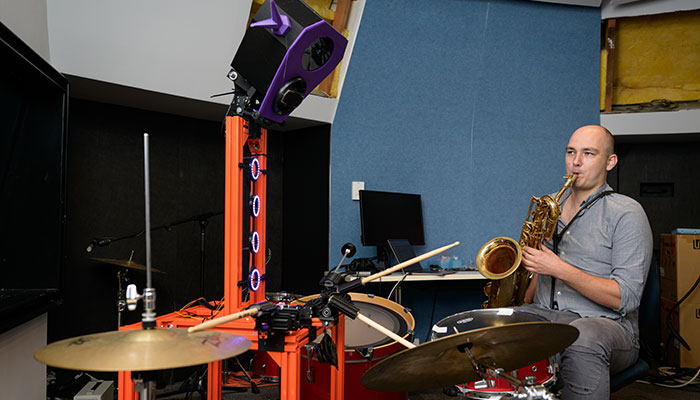Kids who have music lessons may have an advantage when it comes to detecting statistical patterns, a new study led by Macquarie University researchers has found.

Faster: Macquarie University findings suggest musical kids may be able to identify patterns quicker than their non-musical classmates.
The results of the study, published in the journal Clinical Neurophysiology, indicate that children who have some form of musical instrument training also have enhanced statistical learning ability – the ability to notice regularities and use them to learn, and therefore predict, what will happen next.
Children aged between nine and 11 with and without musical training were studied, said lead author, Macquarie's Dr Pragati Mandikal-Vasuki from the Department of Linguistics.
“We found that children who had some form of musical training also performed better in statistical learning tasks, which indicates that training in auditory tasks, such as learning a musical instrument, may also help kids with their ability to detect patterns,” explained Dr Pragati Mandikal-Vasuki.
“These results add another layer of understanding to our current knowledge of how musical training alters learning pathways in the brain.
The researchers first used an array of behavioural detection mechanisms to test for the auditory-related and statistical learning abilities of children, with and without musical training.
Quick thinkers
“Understandably, behavioural testing showed that children with some form of musical training were better at melody discrimination, rhythm discrimination, and frequency discrimination. It also indicated that they were better at auditory statistical learning, but not necessarily visual statistical learning,” said Dr Mandikal-Vasuki.
However, when the researchers measured the brain activity, as opposed to behavioural cues, of the children when they were detecting statistical patterns, another insight came to light.
- Faster, higher, emotionally stronger: risks help kids avoid anxiety
- Music may be key to returning memory to dementia patients
“We could see evidence that the brains of children with musical training were quicker to detect statistical regularities across both sound and visual stimuli, indicating that musical training not only increases a child’s ability to pinpoint a hidden sound pattern, but also potentially, a visual pattern too,” said Mandikal-Vasuki.
The findings imply that music-based remediation may be a potential avenue for treating children with specific types of learning impairment.
“These results add another layer of understanding to our current knowledge of how musical training alters learning pathways in the brain, and could help us to develop programs, potentially based on musical-learning therapies, to better treat children and adults who have particular types of learning difficulties,” says Ms Mandikal-Vasuki.
This article was first published on 26 April 2018



